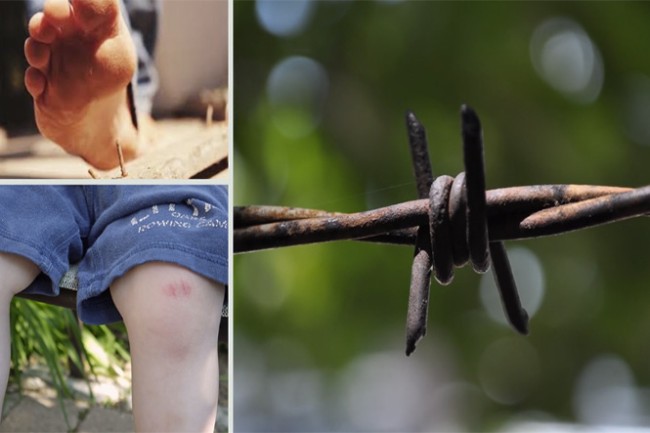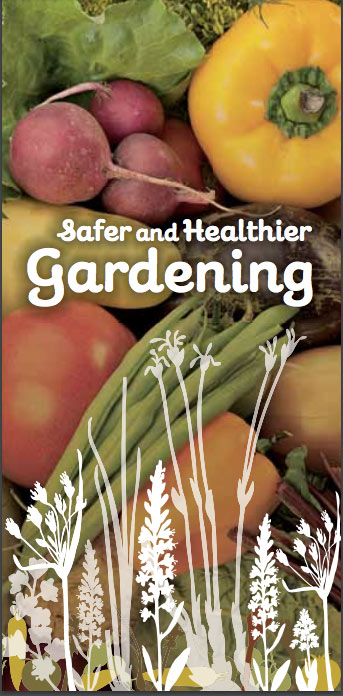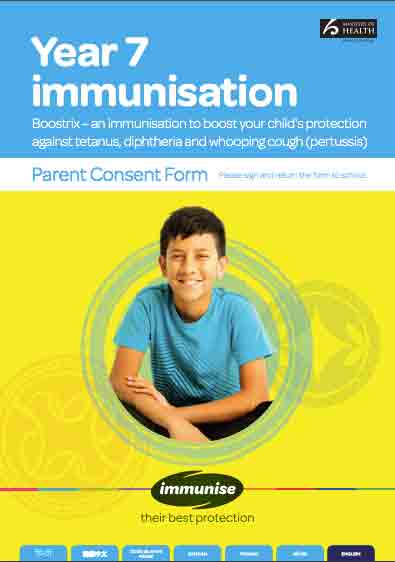Wishing everyone happy holidays and a joyful New Year from the Healthify team. Don't forget to Slip, Slop, Slap and Wrap!
Tetanus
Also called lockjaw
Key points about tetanus
- Tetanus is a serious infection caused by bacteria that's usually found in soil and manure.
- The bacteria can get into your body through a cut, graze or puncture wound.
- Someone with tetanus will become very sick and need to go to hospital. Some people can still die from tetanus.
- There is a fully funded (free) vaccine for tetanus in Aotearoa New Zealand.

Tetanus is caused by bacteria called Clostridium tetani. These bacteria are commonly found in soil and the manure (poo) of animals such as horses and cows.
Tetanus bacteria enter your body through broken skin or wounds, eg, cuts or grazes. In Aotearoa New Zealand, most cases of tetanus are the result of a minor injury.
Some common ways tetanus gets into your body are through:
- wounds that have been contaminated with dirt, soil or manure (poo)
- wounds that have foreign objects in them, eg, wood splinters or nails
- crush injuries
- burns
- open fractures where the skin is broken and the bone is exposed
- wounds with dead tissue,
Once in your body, the bacteria multiply and release a toxin that affects the nerves, causing symptoms such as muscle stiffness and spasms. Read more about tetanus symptoms below.
Tetanus can't be spread from person to person.
Video: Tetanus
The video below describes tetanus, its complications and the importance of getting your vaccinations at the right times. This video may take a few moments to load. (external link)
(external link)
(The Immunisation Advisory Centre, NZ, 2017)
Symptoms of tetanus usually start 3 to 10 days after being infected. Most cases occur within 14 days.
Symptoms include:
- jaw cramping and difficulty chewing or swallowing food (lockjaw)
- sudden muscle spasms
- stiffness or cramps
- seizures (jerking or staring)
- headache
- fever and sweating
- changes in blood pressure and heart rate.
Left untreated, tetanus can cause serious health problems or death in about 1 in 10 people.
If your healthcare provider suspects you could develop tetanus but you haven't had any symptoms yet, they will clean any wounds you have and give you an injection of tetanus immunoglobulin. Tetanus immunoglobulin is a medicine containing antibodies that kill the tetanus bacteria. It offers immediate but short-term protection from tetanus.
They may also give you a dose of the tetanus vaccine if you haven't been fully vaccinated in the past.
If you develop symptoms of tetanus, you'll need to be admitted to a hospital. A machine (respirator) might be required to help you or someone with tetanus breathe.
- Anyone who hasn’t received a primary course of 3 tetanus-containing vaccines is at risk of getting tetanus.
- Anyone born in Aotearoa New Zealand before 1960 is less likely to have received a primary course – unless they were in the armed forces.
- Rural New Zealand children are at greater risk of tetanus than children growing up in an urban area.
- Older women (who may have missed childhood vaccination) and unvaccinated children appear to be most at risk.
Being up-to-date with tetanus vaccination(external link) is the best way to prevent tetanus. All babies in Aotearoa New Zealand can be immunised against tetanus as part of their free childhood immunisations at 6 weeks, 3 months and 5 months of age.
Boosters are also given to children when they’re 4 and 11 years of age.
To ensure protection continues, a tetanus booster is offered at 45 and 65 years of age. Boosters may also be needed after some cuts, grazes and wounds. The vaccine is free, but you’ll need to pay a small administration fee. Read more about who can give vaccinations and where to get vaccinated.
Wound care
Keep cuts, scratches and grazes covered while working outside. Make sure that any injury is immediately and thoroughly cleaned. Read more about cuts and grazes.
Tetanus(external link) Health New Zealand | Te Whatu Ora
Tetanus(external link) Immunisation Advisory Centre, NZ
Apps
First aid and emergency apps
Skin care (dermatology) apps
Brochures
Year 7 immunisation for tetanus, diphtheria and whooping cough (pertussis) (BOOSTRIX™ Vaccine)(external link) HealthEd, NZ, 2023 Available in
Chinese simplified(external link), Chinese traditional(external link), Cook Islands Māori(external link), English(external link), Hindi(external link), te reo Māori(external link), Samoan(external link), Tongan(external link)
References
- Tetanus(external link) Immunisation Advisory Centre, NZ
- Tetanus(external link) Health New Zealand | Te Whatu Ora
- Tetanus(external link) (CDC) Centers for Disease Control and Prevention, US, 2022
- Rural infection series – rural roundup(external link) BPAC, NZ, May 2014
- Tetanus vaccine(external link) NZ Formulary
- Tetanus(external link) Immunisation Handbook, Health New Zealand | Te Whatu Ora
- Guide to tetanus prophylaxis in wound management(external link) Australian Immunisation Handbook, 2023
Apps
Brochures
Credits: Healthify editorial team. Healthify is brought to you by Health Navigator Charitable Trust.
Reviewed by: Dr Art Nahill, Consultant General Physician and Clinical Educator
Last reviewed:
Page last updated:







